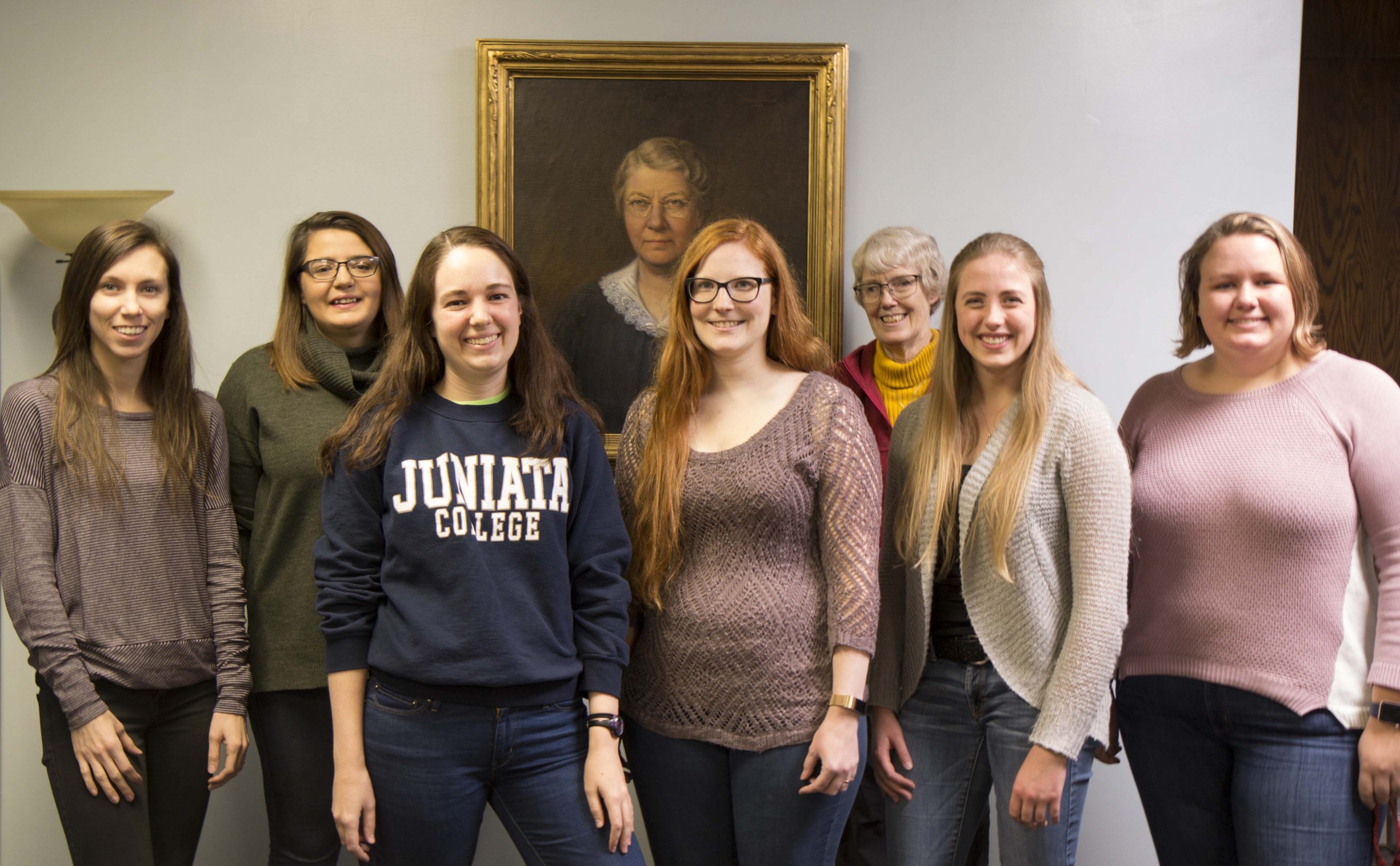Iowa State supportive place for women in mathematics


The Department of Mathematics recently added a portrait of Maria Roberts, graduate of Iowa State in 1890 and former mathematics faculty member, to the mathematics reading room. Her portrait commemorates the longstanding history of women in mathematics at Iowa State University — a tradition that continues today.
“At Iowa State we have a really supportive environment,” said Carolyn Reinhart, graduate student in mathematics. “There are a lot of other women in my classes and I feel that the fellow graduate students and the faculty treat women as equals and are very respectful.”
Part of that supportive environment comes from Enhancing Diversity in Graduate Education (EDGE), a national program with a cluster at Iowa State aimed at strengthening the ability of women students to successfully complete Ph.D. programs in the mathematical sciences and to place more women in visible leadership roles in the mathematics community.
EDGE meets monthly to discuss issues that all students face, like how to succeed in class, as well as issues unique to women —such as deciding whether to keep or change a surname after marriage with papers already published under a maiden name and when to start a family.
The EDGE cluster at Iowa State is led by Leslie Hogben, professor of mathematics and diversity director in the mathematics department.
“I joined the ISU Mathematics Department in 1978 and the entire time I have been here the department has had a culture that is supportive of women and of faculty with family needs,” Hogben said.
This year, the EDGE cluster at Iowa State partnered with Mathematicians of Color Alliance (MOCA) to host the Joint EDGE MOCA Speaker Series (JEMSS). The series is supported through a grant for women in diversity from Iowa State. Six speakers, all women and some also from other underrepresented groups, were invited to share their experiences and research in mathematics. Three of the speakers visited this fall and three more will visit in the spring semester.
“Seeing someone who made it through, has the job we want and who is like us — it’s very empowering to remind ourselves of what the goal is,” Reinhart said.
It is helpful for all those in the department to hear more from other women in the field of mathematics. It also gives women, who make up 30% of the department’s graduate students, and specifically groups like EDGE and MOCA, extra visibility in the department.
“[EDGE] makes the women in the department feel very visible,” Reinhart said. “I have all those people to talk to.”
The EDGE cluster at Iowa State has also reached out to the undergraduate women in mathematics. They hosted a dinner to connect to undergraduate students and talk to them about graduate school and Research Experiences for Undergraduates (REUs). Many of the EDGE members are also involved in starting a chapter on campus of the Association for Women in Mathematics (AWM) which is open to both graduates and undergraduate students, and also to men who want to support their fellow women mathematicians.
“We’ve had some male graduate students that are really excited about being involved and being able to support women mathematicians,” said Mary O’Driscoll, a graduate student in mathematics involved in both EDGE and the formation of the AWM chapter.
Plans for the chapter include mentoring and connecting undergraduate students to current graduate students.
“This will be a very comfortable setting where we can build these kinds of relationships to hopefully inspire undergrads to pursue grad school and higher mathematics,” O’Driscoll said.